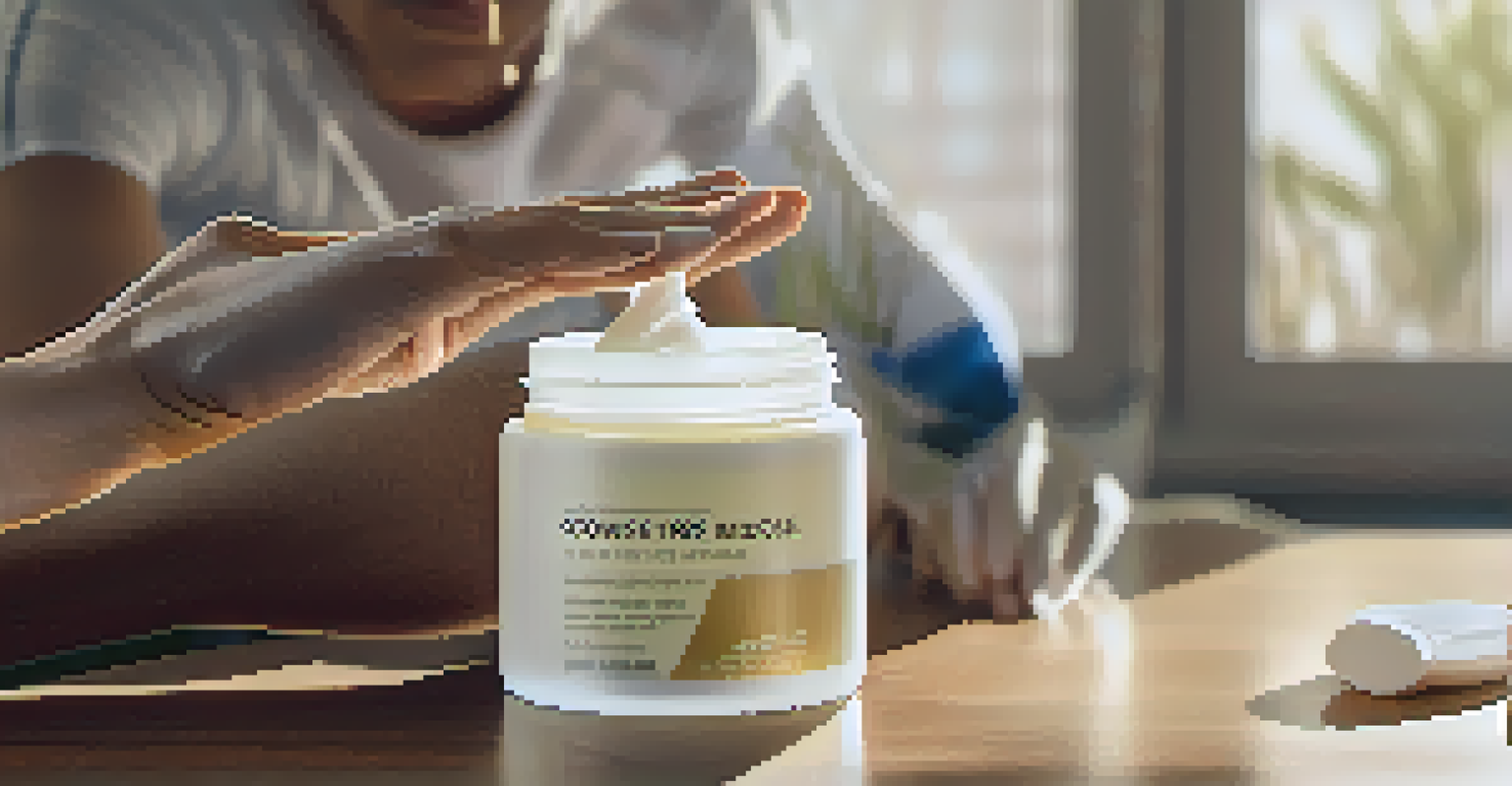The Science Behind Marijuana and Muscle Recovery in Sports

Understanding Muscle Recovery and Its Importance
Muscle recovery is a critical process for athletes, allowing their bodies to heal and rebuild after intense workouts. This phase is essential not only for performance but also for injury prevention. When muscles are stressed during exercise, they experience microscopic tears that need time and care to repair.
The greatest wealth is health.
Adequate recovery helps reduce soreness, improve strength, and enhance overall athletic performance. Athletes often employ various strategies like rest, nutrition, and hydration to support this recovery process. With the rise of alternative therapies, marijuana has emerged as a potential aid worth exploring.
Understanding how different substances affect recovery can empower athletes to make informed choices. As we dive deeper into the science, let's explore the specific effects of marijuana on muscle recovery.
What Is Marijuana and Its Key Components?
Marijuana, also known as cannabis, contains over 100 chemical compounds called cannabinoids. The two most studied cannabinoids are THC (tetrahydrocannabinol) and CBD (cannabidiol). THC is the psychoactive component that produces a 'high,' while CBD is known for its therapeutic properties without the intoxicating effects.

Cannabinoids interact with the body’s endocannabinoid system, which plays a role in regulating various physiological processes, including pain, mood, and inflammation. This interaction suggests that cannabinoids may influence recovery by reducing pain and inflammation, which are common after intense physical activity. Understanding these components is crucial for athletes considering marijuana for recovery.
Muscle Recovery is Essential
Muscle recovery is crucial for athletes as it aids healing, reduces soreness, and enhances performance after intense workouts.
As we look at the potential benefits, it's essential to differentiate between THC and CBD, as their effects can vary significantly. Now, let's explore how these compounds can specifically aid muscle recovery.
The Role of CBD in Muscle Recovery
CBD has gained popularity for its anti-inflammatory properties, making it appealing for muscle recovery. Research suggests that CBD may reduce muscle soreness and inflammation, allowing athletes to bounce back faster after workouts. As inflammation subsides, the healing process can begin more efficiently, leading to improved overall performance.
Take care of your body. It's the only place you have to live.
Additionally, CBD may help with sleep quality, which is a vital aspect of recovery. Poor sleep can hinder the recovery process, as the body does most of its repairing during deep sleep stages. By promoting better sleep, CBD can indirectly facilitate muscle recovery and enhance athletic performance.
Athletes are increasingly finding CBD products that fit their needs, from oils to topical creams. However, it's essential to consider proper dosages and consult with a healthcare professional before trying CBD to ensure safety and efficacy.
How THC Might Aid in Recovery
THC, while known for its psychoactive effects, also holds potential benefits for muscle recovery. Its analgesic properties can help alleviate pain, allowing athletes to manage discomfort after intense training sessions. This pain relief can encourage more consistent training without the fear of aggravating injuries.
Moreover, some studies suggest that THC may help improve appetite, which is crucial for athletes needing to replenish calories and nutrients after workouts. A well-nourished body is better equipped for recovery, and THC could play a role in stimulating appetite.
CBD Supports Recovery Effectively
CBD is recognized for its anti-inflammatory properties, which can help reduce muscle soreness and improve sleep quality for faster recovery.
However, THC's psychoactive effects can impair coordination and judgment, raising concerns about its use, especially in competitive sports. Athletes must weigh the potential benefits against these risks when considering THC as part of their recovery plan.
The Risks and Legalities of Marijuana Use in Sports
Despite the potential benefits, athletes should be aware of the legal status of marijuana in their respective sports. Many organizations, including the World Anti-Doping Agency (WADA), have strict regulations regarding marijuana use, which can lead to suspensions or fines. Understanding these regulations is crucial for athletes who may be considering marijuana for recovery.
Additionally, the effects of marijuana can vary significantly among individuals, and not everyone may respond positively to its use. Factors such as dosage, method of consumption, and individual body chemistry can influence outcomes. Therefore, it's essential for athletes to approach marijuana with caution and to conduct thorough research.
Ultimately, combining knowledge of legalities with personal experiences can help athletes make informed decisions about using marijuana for recovery. Moving forward, it's important to explore how athletes can integrate these substances safely.
Practical Ways to Use Marijuana for Recovery
For those interested in incorporating marijuana into their recovery routine, there are various methods to consider. Topical applications of CBD-infused creams or oils can target specific areas of soreness without the psychoactive effects of THC. This localized approach can provide relief while minimizing the risks associated with broader consumption.
Alternatively, some athletes may opt for edibles or tinctures that allow for more controlled doses of CBD or THC. Understanding the timing and dosage is crucial, as the onset of effects can vary significantly between methods. Finding the right balance can enhance recovery without compromising performance.
Legalities of Marijuana Use
Athletes must understand the legal implications of marijuana use in sports, as regulations vary and can impact their eligibility.
It's advisable to start with a low dose and gradually increase it while monitoring how your body responds. As each athlete's needs are unique, experimentation and adjustment will be key to finding the best approach.
Future Research and Considerations
As interest in marijuana for recovery continues to grow, further research is essential to fully understand its benefits and risks. Current studies provide a glimpse into its potential, but more extensive clinical trials are needed to establish definitive guidelines. This research will help clarify optimal dosages, methods of consumption, and long-term effects on athletic performance.
Moreover, as legalization spreads, the conversation around marijuana in sports is evolving. Athletes and coaches are beginning to advocate for more informed policies that reflect the changing perceptions of marijuana. This shift could lead to more athletes safely integrating marijuana into their recovery regimens.

In the meantime, athletes should stay informed and consider personal experiences alongside emerging research. Balancing scientific findings with personal health journeys will be crucial as we navigate the future of marijuana use in sports.